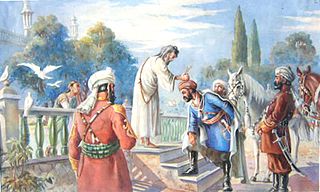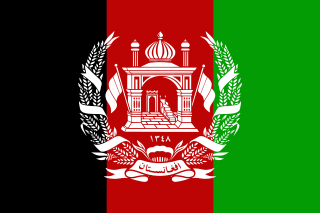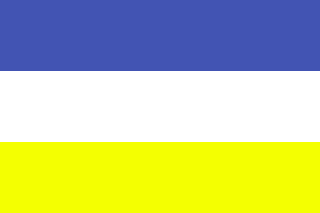Afghan or Afgan may refer to:
Afghan or Afgan may refer to:

Afghans are the citizens and nationals of Afghanistan, as well as their descendants in the Afghan diaspora. The country is made up of various ethnic groups, of which Pashtuns, Tajiks, Hazaras, and Uzbeks are the largest. The three main languages spoken among the Afghan people are Dari, Pashto, and Uzbek. Historically, the term "Afghan" was a Pashtun ethnonym, but later came to refer to all people in the country, regardless of their ethnicity.

Pashtuns, also known as Pakhtuns, or Pathans, are a nomadic, pastoral, eastern Iranic ethnic group primarily residing in northwestern Pakistan and southern and eastern Afghanistan. They historically were also referred to as Afghans until 1964 after the term's meaning had become a demonym for members of all ethnic groups in Afghanistan.

Mohammad Daoud Khan was an Afghan military officer and politician who served as prime minister of Afghanistan from 1953 to 1963 and, as leader of the 1973 Afghan coup d'état which overthrew the monarchy, served as the first president of Afghanistan from 1973 until his assassination in the Saur Revolution.

Pashtunistan or Pakhtunistan is a historical region on the crossroads of Central and South Asia, located on the Iranian Plateau, inhabited by the Pashtun people of southern and eastern Afghanistan and northwestern Pakistan, wherein Pashtun culture, the Pashto language, and identity have been based. Alternative names historically used for the region include Pashtūnkhwā or Pakhtūnkhwā (پښتونخوا), Pathānistān, or simply the Pashtun Belt.

Pashto is an Eastern Iranian language in the Indo-European language family, natively spoken in northwestern Pakistan and southern and eastern Afghanistan. It has official status in Afghanistan and the Pakistani province of Khyber Pakhtunkhwa. It is known in historical Persian literature as Afghani.
Dost Mohammad, Dost Mohammad, Dost Mahomet and other variants is a male Muslim given name meaning friend of Muhammad. Notable bearers of the name include:
Mir was a Soviet/Russian space station.

The Durrānī, formerly known as Abdālī (ابدالي), are one of the largest tribes of Pashtuns. Their traditional homeland is in southern Afghanistan, straddling into Toba Achakzai in Balochistan, Pakistan, but they are also settled in other parts of Afghanistan and parts of Khyber Pakhtunkhwa.
Ghan or variation, may refer to:
Pashtun diaspora comprises all ethnic Pashtuns. There are millions of Pashtuns who are living outside of their traditional homeland of Pashtunistan, a historic region that is today situated over parts of Afghanistan and Pakistan. While the (erstwhile) Pashtunistan is home to the majority of Pashtun people, there are significant local Pashtun diaspora communities scattered across the neighbouring Pakistani provinces of Sindh and Punjab, particularly in their respective provincial capital cities of Karachi and Lahore. Additionally, people with Pashtun ancestry are also found across India; particularly in Rohilkhand, a region in the Indian state of Uttar Pradesh; and in the Indian states of Gujarat and Rajasthan. Outside of South Asia, significant Pashtun diaspora communities are found in the Arab states of the Persian Gulf, the United States, the United Kingdom, Netherlands, Iran, Australia, Canada, and Russia.
Persianization or Persification, is a sociological process of cultural change in which a non-Persian society becomes "Persianate", meaning it either directly adopts or becomes strongly influenced by the Persian language, culture, literature, art, music, and identity as well as other socio-cultural factors. It is a specific form of cultural assimilation that often includes a language shift. The term applies not only to cultures, but also to individuals, as they acclimate to Persian culture and become "Persianized" or "Persified".

Afghanistan is a multiethnic and mostly tribal society. The population of the country consists of numerous ethnolinguistic groups: mainly the Pashtun, Tajik, Hazara, and Uzbek, as well as the minorities of Aimaq, Turkmen, Baloch, Pashai, Nuristani, Gujjar, Brahui, Qizilbash, Pamiri, Kyrgyz, Sadat, Moghol, and others. Altogether they make up the Afghan people.

The Pashtun tribes, are tribes of the Pashtun people, a large Eastern Iranian ethnic group who speak the Pashto language and follow Pashtunwali, the social code of conduct for Pashtuns. They are found primarily in Afghanistan and Pakistan and form the world's largest tribal society, comprising over 60 million people and between 350 and 400 tribes and clans. They are traditionally divided into four tribal confederacies: the Sarbani (سړبني), the Bettani (بېټني), the Ghurghusht (غرغښت), the Karlani (کرلاڼي) and a few allied tribes of those that are Ismailkhel, Khel, Ludin, Sakzai, and Zai.
Pashtunization, is a process of cultural or linguistic change in which someone or something non-Pashtun becomes acculturated to Pashtun influence. Pashtuns are the largest ethnic group in Afghanistan and second-largest in Pakistan.
Yousaf Khan or similar may refer to:

The Kingdom of Afghanistan was a monarchy in Central Asia that was established in 1926 as a successor state to the Emirate of Afghanistan. It was proclaimed by its first king, Amanullah Khan, seven years after he acceded to the throne. The monarchy ended in the 1973 Afghan coup d'état.
Al-Ghani or Ghani means generous or bountiful in Arabic and is one of the names of God in Islam.
Shirani, or Sherani, may refer to:

Hazara nationalism is a movement that claims the Hazara people, an ethnic group native to the Hazaristan region of Afghanistan, are a distinct nation and deserve a nation-state of their own. The movement propagates the view that Muslims are not a nation and that ethnic loyalty must surpass religious loyalty, though this view has been challenged by both the 1890s independence uprisings of Hazaristan and the systematic discrimination many Hazaras have historically faced within Afghanistan.
An Afghan personal name consists of a given name and sometimes a surname at the end. Personal names are generally not divided into first and family names; a single name is recognized as a full personal name, and the addition of further components – such as additional given names, regional, or ethnic family/clan names or patronymics – is often a matter of parents' choice. This structure is shared amongst the different ethnicities of Afghanistan and people of Khyber Pakhtunkhwa.